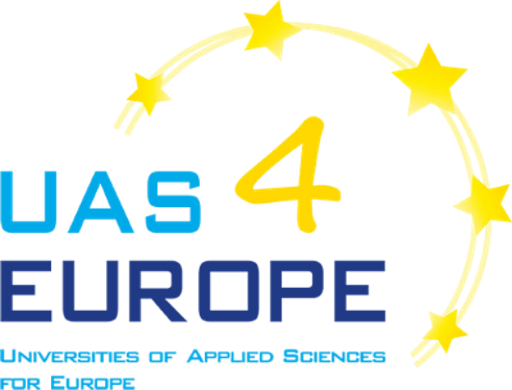Towards 2028 – Shaping the Future of the Framework Programme for R&I
On 6 March 2024, we published our position paper on the future of the EU Framework Programme for R&I. At UAS4EUROPE, the network of Universities of Applied Sciences (UAS) in ERA, we believe that our approach to research and innovation holds immense potential for shaping the future of Horizon. Our position paper outlines our vision for FP10, highlighting how UAS can be empowered to become even more impactful contributors to the success of European research, innovation and competitiveness.
UAS: Anchoring Innovation in Your Region
UAS are deeply embedded within their regions. Focusing on applied research, UAS tackle local challenges head-on and foster vibrant innovation ecosystems. Through close collaboration with businesses, governments, and civil society, UAS translate research into tangible solutions that directly improve people’s lives.
Finding Our Place in Horizon Europe
The impact-oriented approach of Horizon Europe resonates strongly with UAS4EUROPE. Through participation in the programme, UAS bring practical expertise and strong regional connections to research consortia. However, challenges remain:
- Long proposal timelines: Delays between proposal submission and project start hinder the ability to address rapidly evolving regional needs.
- Competition with larger institutions: Smaller project sizes and targeted funding opportunities are needed to ensure fairer competition.
- Increasing industry engagement: Specific programs fostering collaboration between UAS and SMEs can accelerate innovation uptake and market application, leading to increased competitiveness of the EU as a whole.
UAS4EUROPE’s Call to Action for FP10
To unlock the full potential of the EU’s Framework Programme for R&I, we advocate for several key actions:
- Increased R&I funding: Investing in Europe’s future by allocating sufficient resources to research in order to fuel innovation and competitiveness. We join calls by other actors for a budgetary envelope of 200 billion EUR for FP10.
- Recognize the complementary value of fundamental and applied research: Ensuring evaluators understand the potential of all types of consortium members including the distinct contributions of UAS and their hands-on approach to the excellence-impact nexus.
- Boost industry-academia collaboration: Facilitating partnerships, especially with SMEs, to bridge the gap between research and real-world application.
- Support internationalization: Encouraging mobility programmes for UAS researchers to foster knowledge exchange and collaboration.
- Streamline project sizes: Offering smaller, manageable projects that cater to the strengths of research-intensive UAS.
- Timely Work Programmes: Publishing Work Programmes well in advance to allow for effective proposal preparation.
We firmly believe that by addressing these recommendations, FP10 can create a more inclusive and impactful R&I landscape. We stand ready to work collaboratively with policymakers and stakeholders to ensure that UAS, Europe’s regional innovation powerhouses, can play a pivotal role in shaping research excellence and innovation impact.
When: 06/03/2024
Why: Preparation of the successor programme to Horizon Europe (FP10)
What: Universities of Applied Sciences (UAS) have an important role to play in turning knowledge into innovations. With the societal challenges and innovation pillars in Horizon Europe, the Framework Programme has become increasingly attractive to UAS. In order to further develop the programme, we formulate ten specific recommendations for FP10.
UAS4EUROPE - Towards 2028: Shaping the Future of the EU Framework Programme for R&I
When: 10/06/2024
Why: Contribution to the High-Level Expert Group on Horizon Europe and FP10 (Heitor group)
What: Based on our FP10 position paper ("Towards 2028"), we respond to the four structural questions by the Heitor group on 1) thematic challenges, 2) successes and roadblocks of Horizon Europe, 3) the structure of FP10 and 4) major innovations in FP10.
Written statement on Horizon Europe and FP10 to the High-Level Expert Group
